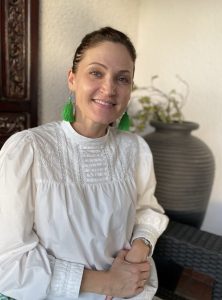Young Children’s Voices in Mathematical Problem Solving
Contributed by Dr Ho Siew Yin and Sng Wei Qin Abbie, from NTUC First Campus, for SingTeach Virtual […]
Read More

Digital media and technology increasingly permeate every aspect of our lives. In fact, for many of us, it is now difficult to imagine how we could work, play, oversee our finances or manage our social relationships without the array of digital tools and services available to us. Yet it is also true that technology has a tendency to develop faster than we have the time to appraise its impact on our young (and old), on our communities, on our environment. The anxieties we feel around losing out in the technological race may compel us to let technology drive social change, instead of starting with developing sustainable principles for how we can leverage technology to maximize human development. Our perspective on the exact role or place of technology in our social world is important because it will shape what counts as progress, how we measure it, and who shares its benefits. Ultimately, the stance we take toward technology today will shape our imagination of possible futures. Digital and media literacy are crucial vehicles in this process as they can set the tone for how we see digital media and technology intertwine with our social fabric.
In this issue of SingTeach, contributors discuss digital and media literacy from a perspective that foregrounds the social. The Big Idea introduces digital and media literacy as a complex and deeply contextual practice and advocates a holistic approach for its development that engages students, teachers as well as parents. NIE Assistant Professor Victor Lim Fei’s research has documented some of the ways in which this may be done, and in his article, he explains why it is so important for teachers to develop digital and media literacy through multimodal composition, digital play, as well as a focus on metalanguage. Associate Professor Antero Garcia from Stanford University in the USA broadens the social lens even further and invites us to think about digital citizenship: How can digital and media literacy facilitate civic identities in our online practices, and what can teachers do in this regard? We can see this idea put into educational practice through Serangoon Garden Secondary School’s Applied Learning Programme (ALP) on Researching Society through Media Literacy. Ms Tan Shu Fen, Head of Humanities and Mr Mohamed Imran, Head of Design and Technology, co-leaders of this interdisciplinary ALP, explain how the programme is geared toward addressing societal issues through design-based collaboration while also fostering complex digital and media literacies. Teck Whye Primary School’s Media Whiz Kids programme similarly tackles technology, design and communication from a complex and interdisciplinary point of view. Miss Gan Yeh Li, ICT Subject Head, and Mdm Nurul Huda Misman, a Senior Teacher in the English department, explain the holistic approach behind Media Whiz Kids and why it is successful in developing media literate youth.